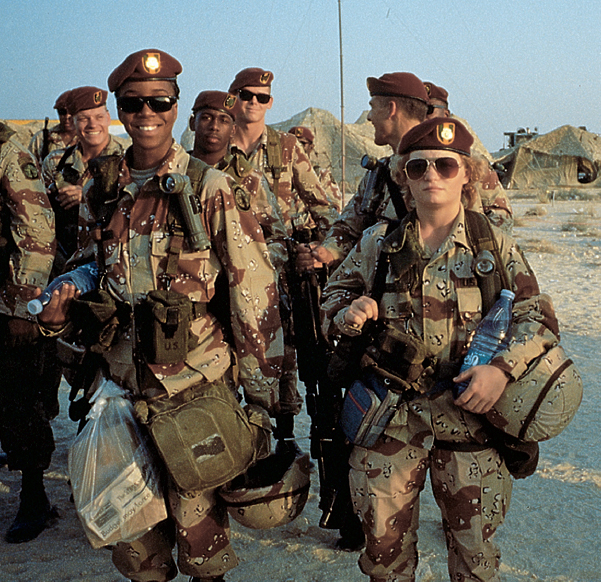America’s History: Printed Page 969
America: A Concise History: Printed Page 879
America’s History: Value Edition: Printed Page 859
End of the Cold War and Rising Conflict in the Middle East
 Luc Delahaye/Sipa Press.
Luc Delahaye/Sipa Press.
Under Ronald Reagan, between 1981 and 1989 the United States increased government military spending and returned to the sharp Cold War rhetoric of earlier decades. Yet during the second half of the 1980s, as internal reforms swept through the Soviet Union, Reagan softened his stance measuredly and engaged in productive dialogue with the Soviet leader Mikhail Gorbachev. Then, between 1989 and 1991, the four-decade Cold War came to a stunning halt. The Soviet Union and its satellite communist regimes in Eastern Europe collapsed. The result was, in the words of President George H. W. Bush, a “new world order.” Without a credible rival, the United States emerged in the 1990s as the lone military “superpower” in the world. In the absence of a clear Cold War enemy, it intervened in civil wars, worked to disrupt terrorist activities, and provided humanitarian aid — but on a case-by-case basis, guided more by pragmatism than by principle.
The foremost region that occupied U.S. attention was the Middle East, where strategic interest in oil supplies remained paramount. Between 1991 and 2011, U.S. armed forces fought three wars in the region — two in Iraq and one in Afghanistan — and became even more deeply embedded in its politics. The end of the Cold War thus brought a dramatic expansion of the U.S. role in the Middle East and renewed debates at home about the proper American role in the world.